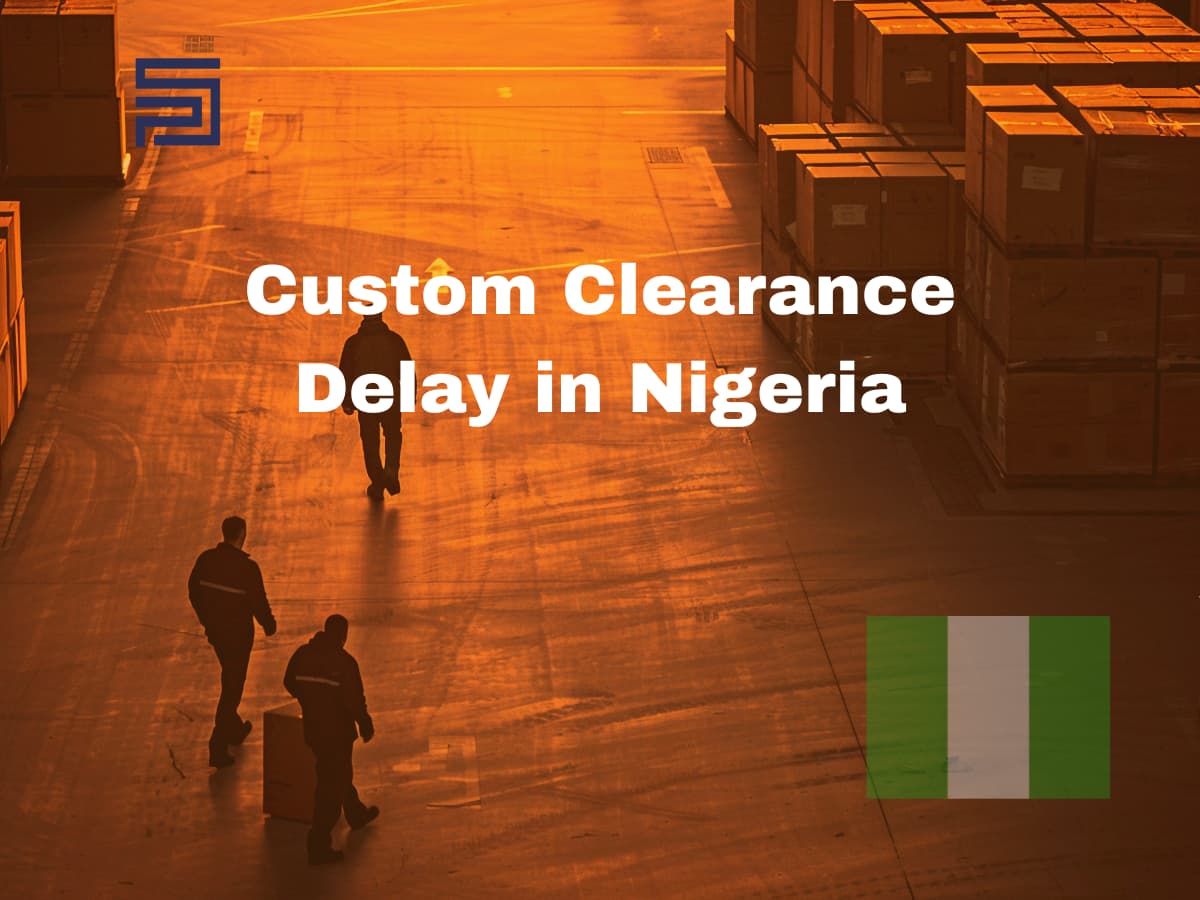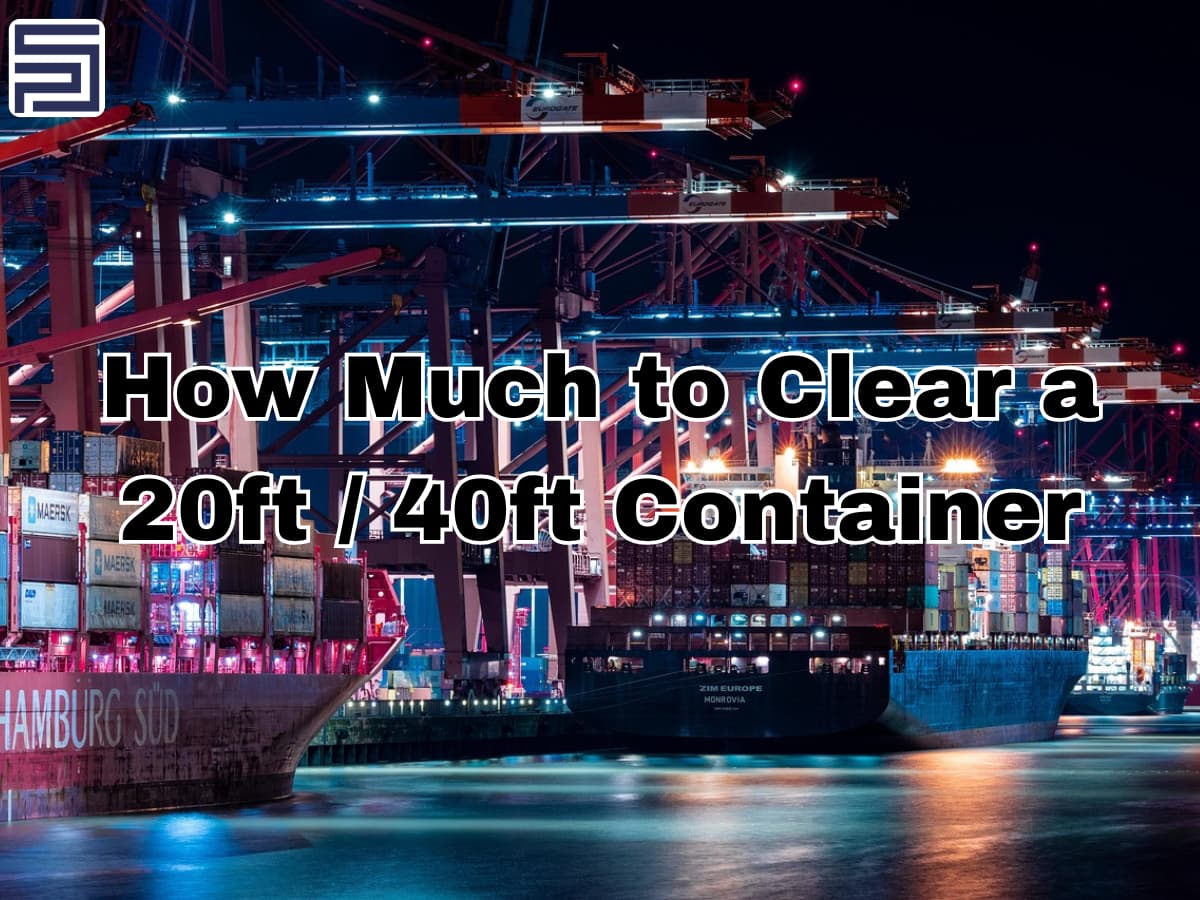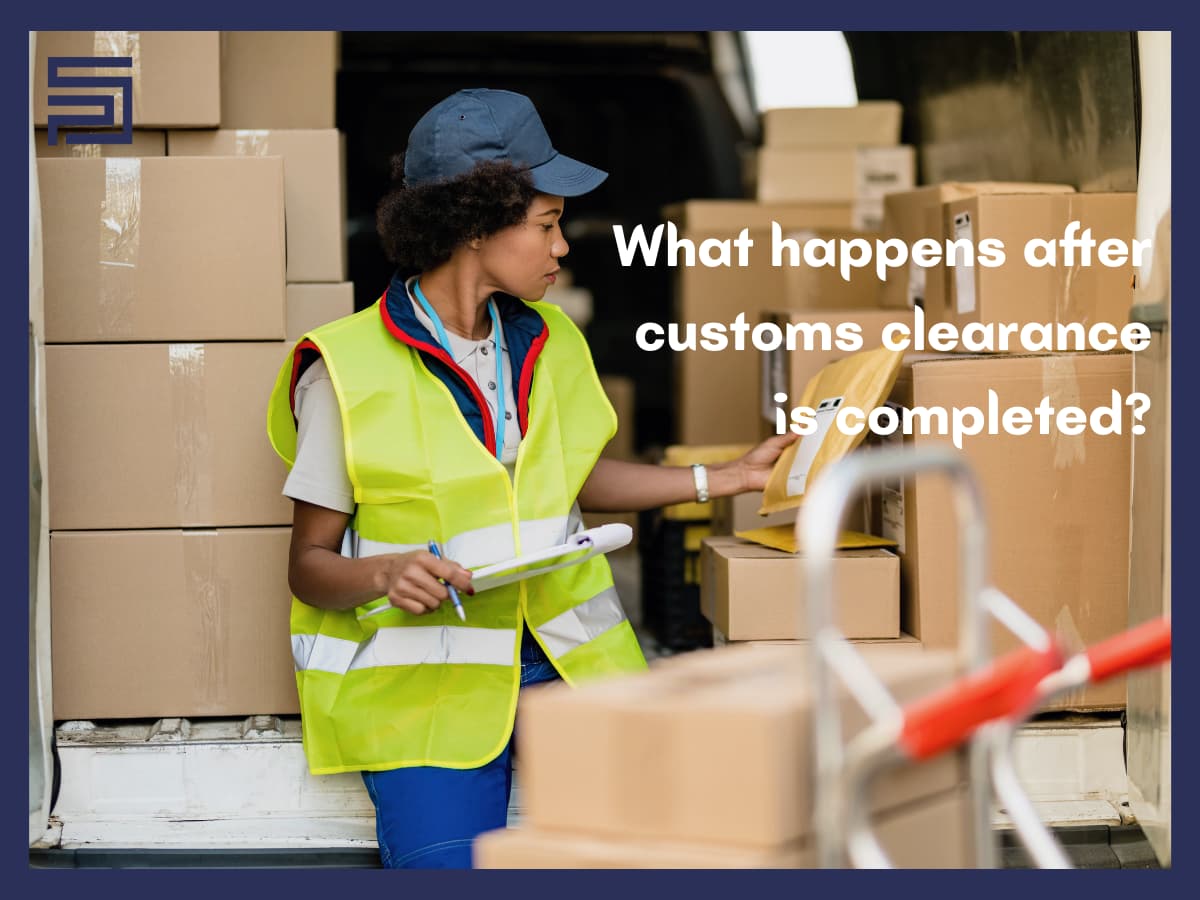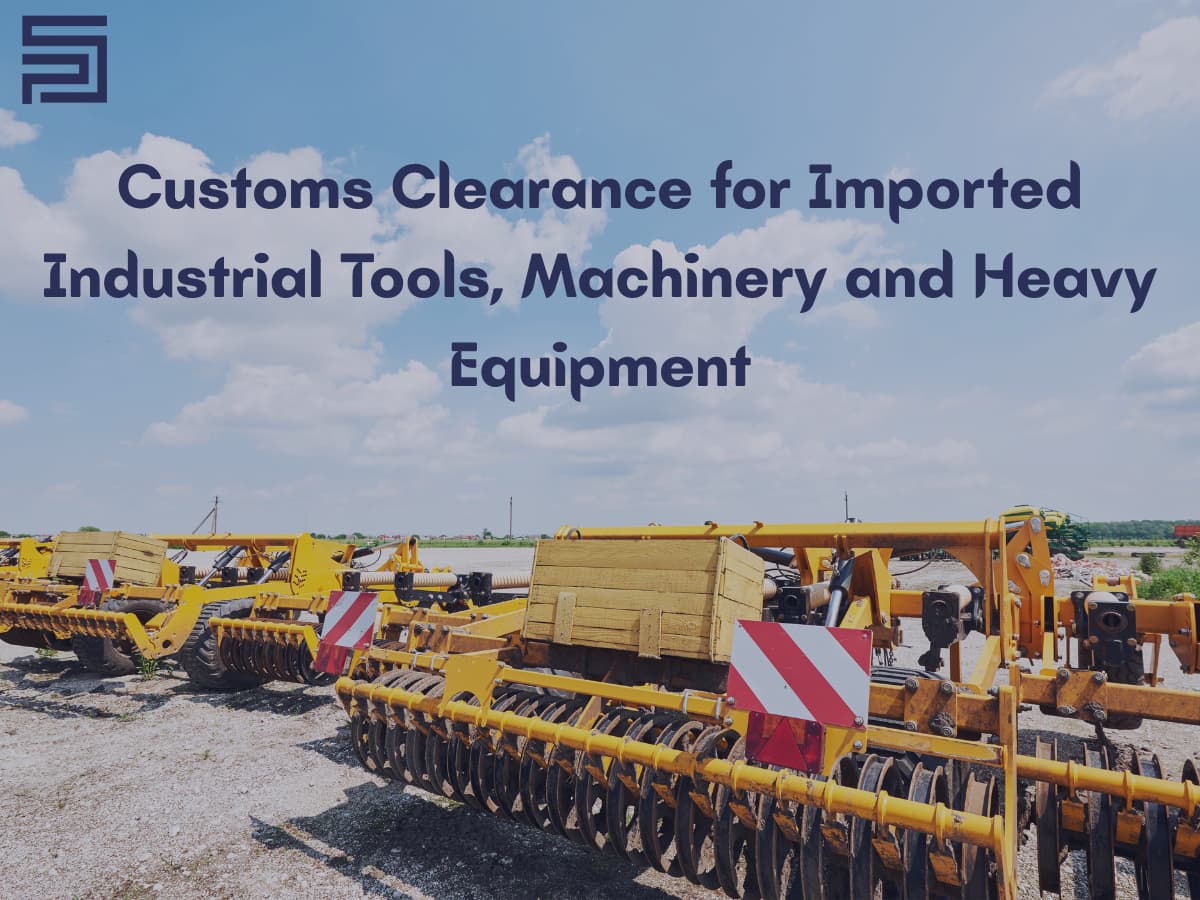Customs checks are necessary, but they also slow shipments down.
Officers must verify paperwork and inspect goods, and because customs is a human and systems-driven process, limits and glitches happen.
As customs brokers who’ve helped businesses clear cargo for 20+ years, we share in this article the common causes of delays we see in Nigeria and the exact steps we use to get goods released faster.
Do you need an expert custom broker to assist you in clearing your goods? Contact our team today, and we will get your goods delivered as soon as possible.
How Long Does Nigeria Customs Clearance Take?
Well, there is no single answer to this question.
How long your goods spend in the port depends on the shipment type, the accuracy of your paperwork, whether the cargo is selected for inspection, and how quickly duties and fees are paid.
When documents are correct and a professional customs broker is managing the process, most routine shipments clear in 3–7 working days.
The Nigeria Customs Service has a goal of reducing the clearance time to 48 hours through the One-Stop-Shop reforms, more on this later in this article.
But until the reforms are fully embedded, many non-routine or misdocumented shipments still follow the 3–7 day timeline.
Top Causes Of Customs Clearance Delays In Nigeria
The following are the common situations that we see businesses get into that lead to customs clearance delays:
- Missing/incorrect documentation (commercial invoice, bill of lading, duty declaration).
- Under- or misclassification (HS code errors).
- Holds for physical inspection/sample testing.
- ICT system glitches or cyber incidents (recently reported).
- Port congestion & terminal inefficiencies
- Payment delays (duties, taxes, terminal charges)
- Valuation disputes & audits
- Non-compliance with local import rules or trade remedies.
Note: Many of these causes can be avoided when you partner with a professional Customs broker to assist you in the clearing process.
You can reach out to our expert team for help.
We have a complete guide on customs clearance time. Check it out for tips on clearing goods through customs faster.
What happens if it isn't cleared?
If, for any reason, you are unable to clear your goods on time, the consequences go beyond a delayed delivery.
Here’s what typically happens when goods continue to sit uncleared at Nigerian ports:
1. Storage, demurrage, and detention charges start to mount:
When cargo stays inside a terminal or container yard beyond the free time allowed by the shipping line or terminal, demurrage (terminal storage) and detention (container use) fees begin to accrue daily.
These charges can quickly outstrip the value of low-margin goods. Shipping lines and terminals publish their free-time rules and tariffs; always check them for exact free days and rates.
You can use the help of our customer relations to get these details.
2. Your cargo can be classified as “overtime” and become at-risk of seizure/forfeiture:
Under Nigerian customs rules, cargo that remains uncleared beyond the statutory overtime threshold can be declared “overtime” and become liable for seizure and eventual forfeiture or auction.
Recent NCS notices and media reports show evolving timelines and enforcement (examples: 90-day / 120-day automated overtime rules and case-by-case ultimatums for specific backlog batches).
That means after the overtime window expires, customs may begin formal seizure and move the cargo to e-auction or other disposal channels.
3. Fines, penalties, and valuation adjustments may be applied
Suppose customs determines there was a misdeclaration (HS code errors, under-valuation) or regulatory non-compliance.
In that case, you may face additional assessments, fines, or penalties, and customs can withhold release until these are settled or an appeal is successfully lodged.
4. Consumer/supply-chain impact: spoilage, lost sales, and reputational damage
Perishable goods risk spoilage; retail and production schedules are disrupted; buyers cancel orders; and repeated clearance problems can harm supplier and buyer trust.
For SMEs, a single uncleared container can create major cashflow problems.
5. Auction, re-export or destruction (worst cases)
Suppose goods are seized for overtime or serious non-compliance. In that case, customs can dispose of them through the authorised e-auction platform, order re-exportation, or, in limited instances, require destruction (especially for prohibited or hazardous items).
Notices and timelines have been tightened in public NCS communications and recent press coverage, meaning the window to act can be limited. They may vary by port and the specific cargo.
How To Avoid Customs Clearance Delays || Practical Checklist
- Prepare the correct paperwork. You can have our team help you verify your document.
- Use accurate product descriptions and declared values
- Pre-submit documents & engage an experienced clearing agent. Contact us today.
- Use AEO / certified partners where possible
What Recent Reforms Mean For Importers (One-Stop-Shop & 48-hour target)
Nigeria Customs has launched a major reform package aimed at slashing average cargo release times, the One-Stop-Shop (OSS) initiative, and is also rolling out a new Unified Customs Management System called B’Odogwu.
These changes promise faster, more transparent clearance in the long run, but the transition has created short-term friction that importers need to plan for.
The One-Stop-Shop (OSS) is a coordinated window (digital + physical) that brings customs and other agencies (NPA, NAFDAC, SON, etc.) together to remove duplication, speed decisions, and standardise release processes.
The NCS has stated that the OSS will be piloted at Apapa, Tin-Can Island, and Onne ports before nationwide rollout.
The stated target is to cut the average clearance time from weeks to 48 hours for routine shipments under the new process.
Why Are You Still Seeing Delays?
The rollout of the new Unified Customs Management System (UCMS), called B’Odogwu, has been the major drawback in the full implementation of OSS.
Integrating agency systems (for example, SON/NAFDAC) into B’Odogwu has caused technical hiccups and temporary blockages of PAARs and other certification flows, which in turn produce queues, PAR/PAA delays, and demurrage for affected importers.
The NCS and other agencies are fully aware of this issue and are actively working to fix the issues, and are not willing to roll back B’Odogwu
How SARA Helps Importers And Exporters
Clearing cargo through Nigeria’s evolving customs landscape is now more about preparation and relationships than luck.
At SARA, we combine 20+ years of hands-on customs brokerage with modern processes and direct agency relationships, so our clients spend far less time fighting paperwork and more time moving product.
Here’s how we get results:
- Full pre-clearance audit.
- HS classification & valuation support.
- Agency liaison & escalation.
- Payment handling & demurrage control.
- Rapid response for stuck cargo.
- Client visibility & practical advice.
What this means for you:
- fewer inspections,
- fewer valuation disputes,
- less demurrage, and
- delivery windows.
Many clients who came to us with shipments “stuck for weeks” moved to release within days after our intervention.
If you need urgent help or want a proactive check before your next shipment, contact SARA for a free customs-clearance health check.
Don’t let system migration, missing documents, or a wrong HS code turn a small problem into a costly one






Comments
Please log in to leave a comment.